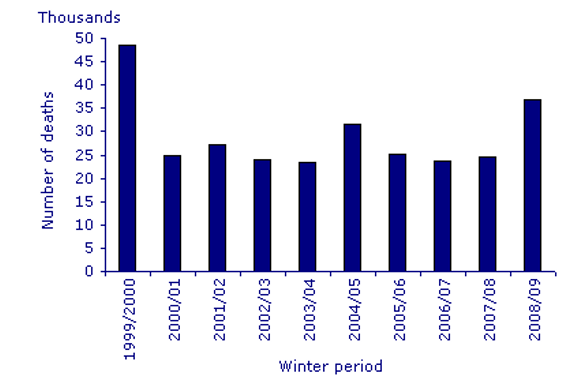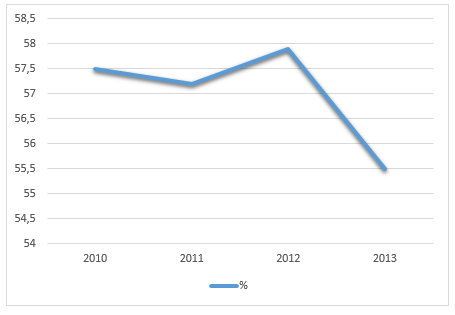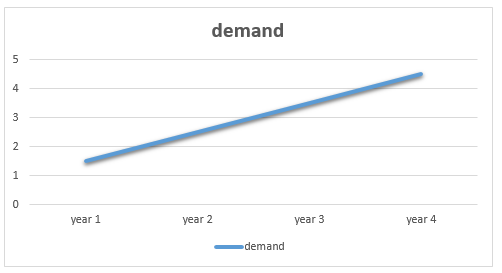Executive summary
Trader Joe’s is a company that has established itself in America as a preference for shoppers. The company operates under the principal that shopping is more than just entering shopping malls. To them, shopping is that act of ensuring that they meet the customer’s needs. The company’s operations have always been based in America, and they are yet to move out of the region. However, Africa offers a large market specifically in the Sub-Saharan region (Asiedu 111). For a company to operate in this region, there is a need to look for the right starting point. Kenya offers viable center that makes the company have access to the Sub-Saharan region. The paper looks at the factors that make the region outstanding, thus, offering the reasons why it is profitable to invest in this region.
Kenya’s economy
The Kenyan government has enjoyed a gradually growing economy for a very long time (Collier 67). The tranquility that is in the region and the strong welcoming culture of the country has made it flourish in times of great distress. The country has had its fair shares of difficulties but has managed to keep the economy steady. The country did experience turmoil in the recent years, but it is how amazing how Kenya is maintaining a healthy business environment. It serves the great east Africa and has the strongest growing economy in the region.
Kenya is an admirable economic force in East African region, and it influences the growth rate of the region. The country has experienced little political turmoil, thus, making the area a peaceful commercial hub. To be precise, peace is a critical factor in creating a formidable business environment. It has come to the attention of various economists that workforce, economic stability and the success of a business venture narrows down to the political and economic situation of a country. Like any other African country, Kenya has challenges irrespective of its economic stability.
Why would Kenya standout as a country worth to invest? Africa has had a bad reputation of being a hostile region. In addition, the country is renowned for frequent civil wars. Publicists have ruled out the possibility of any country in Africa having growing potential for any business. Currently, the Kenyan state scores fifty-seven percent in the economic index rate of 2014. In this context, the country’s rank among the world’s best economies is 111 in the world. In addition, the country records a 1.2-point increase from 2013 reports. Moreover, the country is ranked seventeen out of the forty-six countries in the Sub-Saharan Africa region. With such results, it would give an investor a reason to ask why it does so well in a region doomed for failure (Moen Eli).
The country has a thirty percent tax rate for both the individual and corporations. Overall, the country is experiencing a tax burden of 20.1 percent on gross domestic income. The government debts are going down as low as forty-eight percent of the GPD. The Kenyan government understands the importance of capital tax enforcement. Indeed, the same is used by the government in boosting revenue collection. The downside to this investment is that the government screens for potential investors. However, the logical argument for the same is that the laws of the region do not discriminate against foreign traders. The vast market venture that the country offers is very profitable to any investor.


The resources available in Kenya
Trader Joe’s has a particular line of product that does fit perfectly with this region. The products that suit this area includes the Gluten free product, vegetarian products, and low sodium products. Kenya is a country whose economy depends on food products (Athukorala and Sisira 1398). A group likes Trader Joe’s stands to benefit very much from this concept. The farming products are mainly exported out of the country through retailers and before they get to the United States. However, the exported markets are highly valued in foreign markets. Nonetheless, the establishment of the company in the region has led to reduced cost of production, as well as, availability of resources.
Wheat is a common ingredient in most of the products that the company is currently producing. Kenya has had a very rich culture as far as white growing is concerned. The wheat growing regions in the country are found across the Great Rift Valley and its immediate environs. Wheat was first introduced in the region by the colonial Britons, and since then, the product has become a major cash crop. Apparently, the crop is harvested and then transported to the national cereals board stores where it is packed and shipped to different markets. The country also has miller’s companies that process wheat products after buying the product from farmers. In this context, the availability of such products is guaranteed.
Government incentives to investors are a factor that ought to be considered. The country does acknowledge the current challenges existing in the region. Among the incentives offered by the government are loans that can be given to investors and the provision of free tax holidays. In addition, the region benefits from modern transport infrastructure especially the accessible roads. In this regard, the region is strategically accessible from the sea, land and air.
Security is one of the most cherished and celebrated elements of the area. The region has had trouble in the recent past concerning security, but it does provide a safe environment to nurture business development. In fact, Kenya is the safest country for business investors in the East African region. The government’s efforts in ensuring that insecurity does not deter investors from visiting the region have been splendid for the last decade.
Cultural diversity of the region acts in the favor of the business. The Trader Joe’s company has flourished on the provision of services that are considered world class. The company has managed to cut through the differences and personalities that are presented in the markets. The essence of cultural competence in the company is to instill effective customer satisfaction. In Kenya, the communities do have diversity in culture and traditions irrespective of common national values. Therefore, the acceptance of a product is not based upon cultural differences but the appeal of the same among different cultures. In fact, companies that do flourish in this economy can attest to this fact.
Why Kenya stands out
Currently, Kenya is operating under the vision twenty thirty. The idea of the vision 2030 is for the region to develop towards acceptable international standards in terms of infrastructure and technological advancements. With a country that is striving towards the improvement of economic development, it stands a better chance of attracting more investors. Availability of capital and incentives that are being offered is the reason for such improvements. The company requires good infrastructure, financial stability and an environment for employee growth and development. Therefore, Kenya provides a favorable option for business growth and economic stability.
ICT centers in Kenya are a major factor to be considered in the business sector (Gichoya 179). Due to ICT, the world has become more accessible from any corner in the world. The introduction of internet services and communication centers that make this a reality is a factor that is of concern to this population. In modern times, business communication no longer depends on face-to-face talk or the long distance travels.
In any case, modern communication strategies have made business transactions less costly. In addition, it is a necessity since business companies are shipping operations to Africa. Although Kenya’s internet connections are not world class, the same is of considerable standards compared to other countries. Moreover, ICT in Kenya has made marketing through advertisement possible especially for product promotion initiatives.
Workforce is another major factor to consider in Kenya’s business environment. Kenya is a country that is made of hardworking individuals. The diversity of a large population gives the company the variety of available work force that is in the country. The Kenyan community is made up of educated and literate workforce. The country has very aggressive citizens who strive for nothing less than success. Therefore, this provides the company with a productive workforce to harness growth and productivity.
Convenience is another factor to consider before establishing a business in Kenya. However, the term convenience can be understood from different dimensions. For example, how is the country convenient in terms of market? How is it convenient in terms of security and communication? To answer the first question effectively, one has to compare the GDP of Kenya to other countries in the region.
The population of this country stands at about forty-two million people. The growth rate of the economy per year is estimated to be about 4.7% and per capita income of $1,802. In addition, the unemployment levels of the region are at forty percent. Moreover, the neighboring countries depend on the Kenyan economy. From this perspective, Kenya is perceived as an integral economy in contributing towards the development of the neighboring countries. In this regard, a foreign investor has an opportunity to benefit from a large market base in Kenya and neighboring countries especially within the East African region.
Factors making Kenya an investment destination
In order for a business to relocate to certain areas, there are factors that need to be examined. The company’s brand image is a crucial aspect that also has to be examined. What are the benefits that come with the Trader Joe’s moving its operations to Kenya? What is the completion that they are likely to face?
In answering the first question, one has to examine the economy of Kenya at large. Therefore, the analysis of the already discussed factors is integral in this process. Factors to be considered include the proximity and access to the East African community market and the tax benefits that come with such a move. The minimum wage in the region is manageable and thus the cost of operations is within an acceptable range. As pointed out earlier, the tranquility of the region also makes it very accessible and provides a good environment for business growth. The business will be making its first entry into African market. Apparently, the company will benefit from fewer risks than in all the other regions. Taking up investment options in Kenya will mean having access to the sub-Saharan market (Ashraf, Xavier and Dean 982).
The only challenge that the company will be getting is from small retailers in the region. Small retail business or domestic companies have a competitive disadvantage compared to foreign investors. The Kenyan market is very profitable in so many ways. The challenges that the company might face include the bureaucracy of the government especially in acquiring business licenses.
Challenges that Trader Joe’s is bound to face when moving to Kenya
Every business operation has to face the reality that there could be some changes in profit margin. Therefore, a company that has enjoyed the benefits of staying very relevant in the United States before moving to a new area is bound to experience a change of profit margin. To counter this, there is a need to protect the profit margins of the area. Doing this would require looking at the relations and the profits that the company is currently enjoying in the area they operate, and the using ratio predicts the likely scenario should the company move its base of operation.
The company enjoys about 400 stores in an approximation of about forty states. The number of products they sell is eighty percent of their labels (tradejoes n.p). They are operating in a stable environment, and the profit levels are high.
Moving to a region like Kenya will require groundwork operations and publicist to ensure that they advertise their products in the region. The networking that was already in place in the region they operate in will have to change once they move to Kenya. What remains the same is the rate of interest that they will be enjoying. In Kenya, the cost of operations is lower unlike in the United States, and the market sales can be pushed to the level that is equivalent to that of America. The profit ratios of the two areas are different with that of Kenya being a bit higher compared to the latter. It is because of the lowered costs in the region.

Conclusion
Africa has not yet to be tapped fully by investors. Most businesses shy away from this great continent attributes to sacristy of resources in the region and infrastructure problems. Countries that have improved their infrastructure to levels that are close enough to acceptance get more investors. The investors that take a bold step and try out this market have had a good profit to tell of such success. The companies have also developed loyal customers and unlimited opportunities of growing as a company.
Kenya is not an exceptional country, but it does try and make the environment conducive enough for local and international investors in the effort of building and stabilizing the economy. Trader Joe’s is a company that is reputable about building from nothing, and they have managed to concur the American market exploring the African, specifically Sub-Saharan seems like the best way to go for the company.
Works Cited
Ashraf, Nava, Xavier Giné, and Dean Karlan. “Finding missing markets (and a disturbing epilogue): Evidence from an export crop adoption and marketing intervention in Kenya.” American Journal of Agricultural Economics 91.4 (2009): 973-990. Print.
Asiedu, Elizabeth. “On the determinants of foreign direct investment to developing countries: is Africa different?.” World development 30.1 (2002): 107-119. Print.
Athukorala, Prema‐Chandra, and Sisira Jayasuriya. “Food safety issues, trade and WTO rules: a developing country perspective.” The World Economy 26.9 (2003): 1395-1416. Print.
Collier, Paul. Economic causes of civil conflict and their implications for policy. Washington, DC: World Bank, 2000. Print.
Gichoya, David. “Factors affecting the successful implementation of ICT projects in government.” The Electronic Journal of e-Government 3.4 (2005): 175-184. Print.